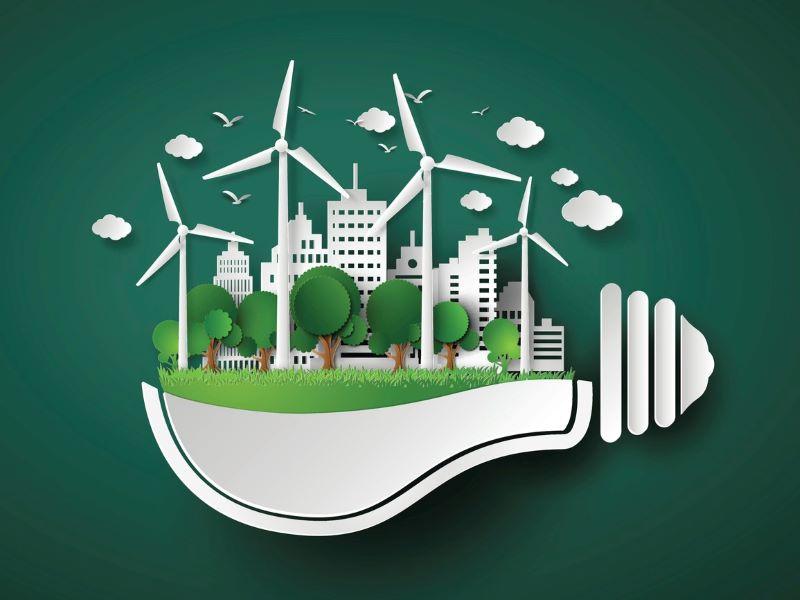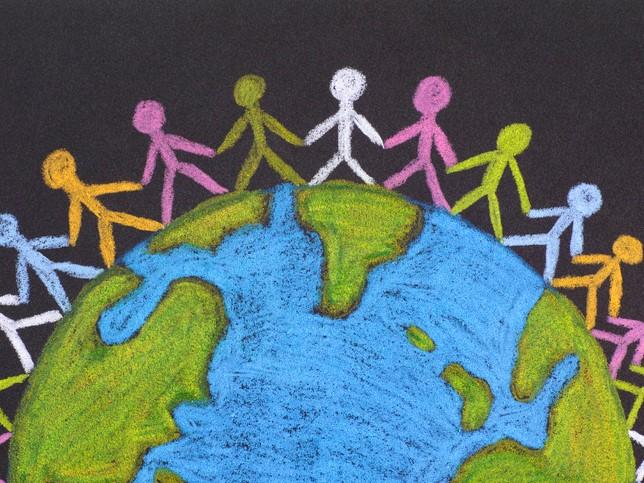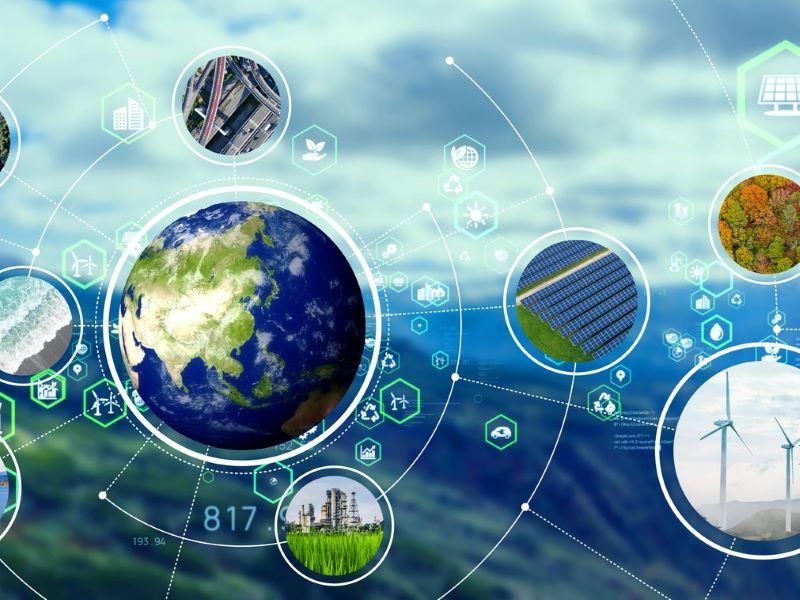
Decolonisation as a driver for the Sustainable Development Goals
How decolonial approaches can underpin and drive work to achieve the Sustainable Development Goals across higher education
The United Nations’ Sustainable Development Goals (SDGs) serve as a global framework to address pressing social, economic and environmental challenges. As an institution we have used the SDGs to gauge our sustainability progress, both internally through our Strategy 2030 and externally through the THE Impact rankings – in which the University of Exeter came 18th globally for progress.
However, there can be challenges in implementing the SDGs. The SDGs call for universal sustainable development, but this is difficult to achieve when operated within systems that privilege few and oppress many. Decolonisation, as a transformative process, breaks down these systems by empowering grassroots change to work towards creating an equitable world – a shared vision of the SDGs. Decolonial efforts focus on uncoupling from colonial legacies that perpetuate power imbalances and are therefore essential in creating meaningful and lasting change that prioritises sustainable development for all. Below are four examples that demonstrate where decolonial action foregrounds progress on the SDGs.
- Charting a shared path to net zero universities
- Supporting student action on sustainability
- Engaging students in applied research to tackle Sustainable Development Goals
SDG 4: Quality education
SDG 4 emphasises improving infrastructure to enable all young people to have access to education. However, within education institutions we need to consider what quality education means beyond access. Quality education should enable students to have both a depth and breadth of knowledge in their chosen fields. For students to experience this breadth, we need to expose them to many ways of thinking so that they can independently form their own views of the world.
Decolonial, postcolonial and Indigenous scholarship contributes towards this through unsettling the perceived objectivity and centrality of Western thought. From this, students quickly learn the essential threshold concept: history is not fact but an interweaving of different stories and versions of events. Decoloniality therefore encourages students to question what they assume as “fact”. Ultimately, criticality is key to embracing a breadth of knowledge and supports students to become agents in developing their own opinions as part of their quality education.
A recommended initial step for this process involves studying the historical and colonial origins of climate change, including the effects of imperialism and economic expansion. This can support a critical assessment of prevailing Western narratives and strategies regarding the mitigation and adaptation of climate change. Throughout this process, it is important to encourage students to delve into alternative frameworks and knowledge systems, such as ecofeminism, Indigenous philosophies and postcolonial perspectives.
SDG 10: Reduced inequalities
The legacies of imperialism, colonialism and slavery have deeply affected our society, leaving power imbalances, the erasure of cultural identities and economic disparities. To reduce inequalities it is necessary to critically examine the histories and systems that have shaped how and what we learn, how we treat each other and how we “help” – including the formation and delivery of the SDGs.
Decolonisation involves examining and dismantling systems that bias the white, male, upper-class heteronormative, Anglocentric perspective. Decolonial work rebuilds these systems, not to exclude these voices, but to situate them in a framework that appreciates all. A crucial aspect of this process is promoting a sense of belonging. This means ensuring that students and staff feel safe, welcomed and represented in their learning communities.
We can encourage students and colleagues alike to explore their own privilege and to question the structures around them. A practical approach to this would be to bridge theoretical concepts with real-world examples of discrimination and power dynamics within the university setting. By examining instances of unequal treatment, biases or exclusion that occur in classrooms, student organisations or administrative decisions, we can foster critical awareness and facilitate meaningful discussions on these issues. Making things personal, questioning our experiences and positioning, and understanding the power we do and do not have foregrounds action. Without this action, we cannot hope to make meaningful progress towards SDG 10.
SDG 11: Sustainable cities and communities
Sustainable cities and communities need to work with, not against nature. Underpinning this is the need to connect with our natural world to appreciate what the Earth provides. Educating through Indigenous frameworks can contribute to this greater sense of interconnectedness and help to alleviate alienation, ecological grief and anxiety. This is because Indigenous knowledge systems emphasise the interconnectedness of all living beings, fostering a deep sense of belonging and responsibility towards the environment, because we are a part of it. Integrating this holistic worldview can help to develop a stronger connection to nature, nurturing an empathetic approach to environmental stewardship and sustainable cities and communities.
Embracing experiential learning is a great way to begin this process, moving beyond passive knowledge consumption to active engagement with the environment. Through hands-on experiences such as field trips to local ecosystems, students develop a profound understanding of sustainability. By immersing learners in sensory interactions, we forge a deep connection to the natural world.
SDG 16: Peace, justice and strong institutions
SDG 16 offers an overarching approach of using inclusivity as a tether to peace, justice and sustainable development and institutions. Inclusivity, however, cannot be taken as a given. Inclusivity must be actively engaged with to empower our communities.
Educators should play a crucial role in fostering meaningful engagement by involving students in community-based and participatory projects that address sustainability through a grassroots approach. Educators can encourage students to conduct research and inquiry on climate change impacts and adaptation strategies specific to their local regions as equal partners and active participants rather than mere facilitators or recipients of knowledge transfer. In this participatory process, community voices are prioritised and solutions are developed in a democratic and contextually relevant manner. Here educators are drawing on the same foundations as decolonial work that advocates for empowering communities, using local knowledge and fostering collaboration. This shift away from top-down approaches and encouragement of co-creation and contextually relevant, culturally sensitive solutions will ultimately lead to strong and just institutions.
These four examples show that fulfilling the SDGs requires us to engage with decolonial and Indigenous practices. Educators in higher education institutions play a crucial role in integrating decolonisation into the SDGs, using their authority to teach where it is appropriate and, more often than not, to ask questions and seek the guidance and expertise of others – both within and outside academia.
Sean Porter is an academic developer (transformative education) and Eleanor Cook is transformative education assistant, both at the University of Exeter.
If you would like advice and insight from academics and university staff delivered direct to your inbox each week, sign up for the Campus newsletter.




